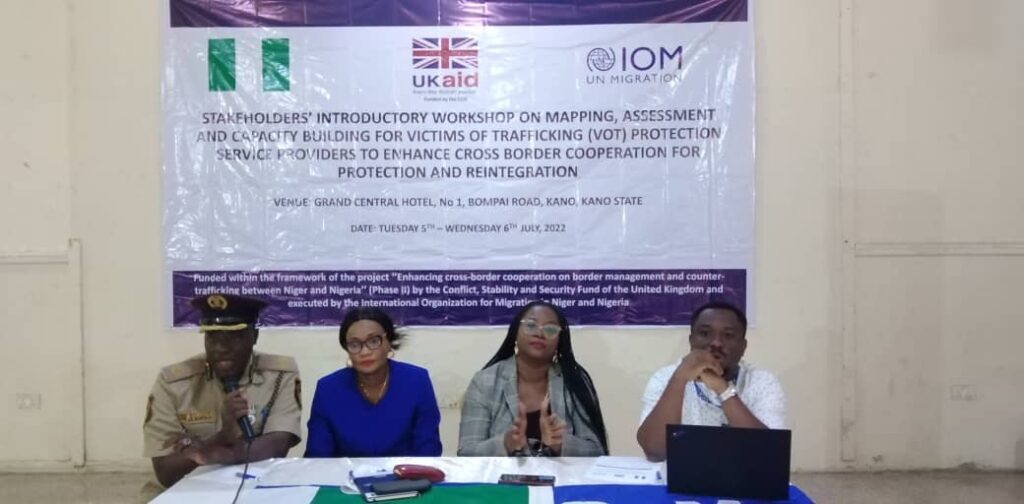
Nigeria continues to experience high internal and external human trafficking due to the growing size of its population, high insecurity, climate as well as its unmanned borders. Over the years, significant effort has been undertaken at the national and international level to establish an effective and globally coordinated approach to combatting trafficking, however, these efforts have not yielded the desired result. Nigeria experiences both local and international human trafficking and acts as a transit route for human traffickers to transport victims to other countries.
The majority of human trafficking activities occur in border communities of the country. The North Western part of the country, which consists of Kaduna, Kano, Katsina, Jigawa, Kebbi and Sokoto states is not an exemption. These states share international boundaries with Niger and traffickers take advantage of the availability of many unmanned border posts in these states to carry out human trafficking activities.

International development partners have designed programmes and interventions to help combat the issue of trafficking in persons. One of such interventions is the creation of the Conflict Stability and Security Fund (CSSF) by the UK Government. The main objective of the fund is to provide development and security reports to countries that are prone to conflict or violence. The CATS project (Collaboration against Trafficking and Smuggling Project) is funded under the CSSF with its priority set towards enhancing migration governance and providing an effective counter-trafficking response between Nigeria and Niger.
International Organization for Migration (IOM) engaged Centre for Health Ethics Law and Development (CHELD), an organisation which provides capacity-building, legal advisory services, and technical support on migration matters, including migration, health and information was selected to identify the gaps and challenges for service provision for Victims of Trafficking (VoTs), identify and assess the presence, capacity and needs of relevant specialised state and non-state actors for providing victim and support services to Victims of Trafficking (VoTs) at border communities between Niger and Nigeria, develop capacity building programmes aimed at strengthening victim-centred and rights-based approaches in the scope of the provision of services among actors in the VoTs protection chain and develop strategies for improving service provision to VoTs in the North West.
A 2 (Two)-day stakeholder’s introductory meeting facilitated by the Executive Director of CHELD, Professor Cheluchi Onyemelukwe was held in Kano from the 5th – 6th of July, 2022. In attendance were representatives of key stakeholders from the target states. The Ministry of Women Affairs, Ministry of Justice, Ministry of Health, NACTAL, NAPTIP, Nigeria Immigration Service, National Human Rights Commission, CSOs working on Migration were duly represented. An overview of the Project and Situation Analysis based on Desk Review was presented by CHELD, participants discussed relevant issues and challenges service providers encounter during service provision to victims and ways by which these challenges can be averted were discussed. Strategies for improving service provisions to VoTs in the Northwest were proposed by stakeholders.

Some of the recommendations by participants at the workshop to ensure stronger border management and eradicate human trafficking in the North West include system strengthening through capacity building of all state and non-state actors in identifying and rescuing VoT in the North West, Advocacy for increased resources for information and documentation on VoT as insufficient funding hinders the provision of adequate support for victims. It was also suggested that there is an emerging need to enforce proper data gathering and keep accurate and up-to-date records on trafficking in the North West.
Furthermore, there is a need for continuous collaboration between enforcement authorities, NAPTIP, CSOs and other service providers. There is also a need for educational empowerment of groups most vulnerable to trafficking so as to reduce the likelihood of enticement by traffickers.







